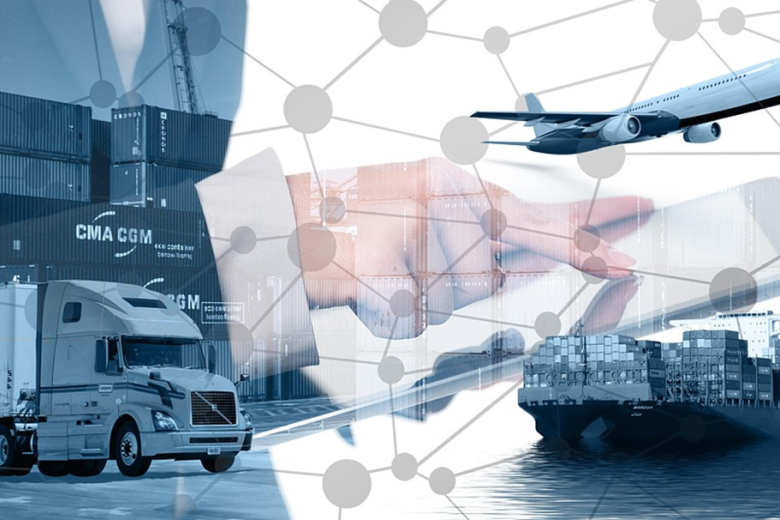Breaking Legal Boundaries: How Private International Law Can Keep Up With Global Value Chains
On Wednesday 29th January, M-EPLI welcomed Prof. dr. Toshiyuki Kono, Professor at the Graduate School of Law at Kyushu University, Japan. The event was moderated by Dr. Daniel On, followed by an insightful commentary by Prof. dr. Marta Pertegas and discussion with the participants.
Prof. Kono’s presentation explored the growing legal challenges posed by Global Value Chains (GVCs) and why private international law (PIL) needs to evolve. He proposed that traditional PIL frameworks, built on rigid state-law paradigms, struggle to regulate the dynamic and networked nature of modern business operations. Instead, Prof. Kono calls for a shift toward a more flexible and transnational approach that recognises the role of non-state norms and hybrid legal structures within GVCs.
Background to GVC
GVCs are made up of vast international networks of production and trade that connect economies worldwide. Traditional PIL, which is designed around state-centric legal principles, struggles to keep up with the decentralised nature of GVCs. Legal uncertainty grows from as GVCs increasingly operate based on soft law, non-state standards, and mixed regulatory systems. Prof. Kono’s research aims to bridge the gap between existing PIL frameworks and the realities of contemporary global trade, with the goal of promoting fairer and more effective governance.
Key limitations of traditional Private International Law (PIL)
Prof. Kono highlighted several key limitations of traditional PIL in regulating GVCs. He argued that PIL is too focused on the nation state, often excluding non-state and hybrid norms despite their growing role in global commerce. This creates legal rigidity, as PIL prioritises predictability, while the fast-moving interconnected reality of GVCs require flexibility to accommodate their dynamic, transnational nature.
Another challenge lies within jurisdictional classification, where PIL fails to capture the interconnected responsibilities of actors across multiple legal systems. Prof. Kono introduced the concept of “network responsibility”, which distributes obligations across the players involved in the chain, as opposed to attributing responsibility to a single entity.
Lastly, Prof. Kono highlighted the role of soft law and digitalisation in shaping modern regulatory frameworks, arguing that PIL should integrate these emerging legal mechanisms to provide more effective governance of GVCs.
Implications for future research
Prof. Kono’s research has significant implications for various stakeholders. For legal scholars, it challenges the traditional foundations of PIL and encourages a shift to a flexible, network-based legal model of PIL. Policymakers and legislators are urged to reform regulatory approaches to take account of non-state norms and hybrid legal mechanisms to better reflect the realities how GVCs operate.
For courts and legal practitioners, the findings highlight the need for greater adaptability in applying choice-of-law rules, ensuring that legal certainty does not come at the expense of fairness and efficiency in cross-border disputes. Transnational corporations should recognise the growing risks associated with soft law mechanisms and network responsibility, leading them to develop stronger governance strategies to manage risk and mitigate liability.
The Need for Flexibility and Redefining Legal Certainty in PIL: Prof. Marta Pertegas’ Comment
Prof. Marta Pertegas shared her support for Prof. Kono’s presentation, agreeing that PIL must evolve to better regulate GVCs. She questioned whether GVCs represent a radical shift or a continuation of existing trends, suggesting that soft law and transnational norms are already part of contemporary PIL.
Prof. Pertegas agreed that PIL should embrace contingency and flexibility, with less of an emphasis on legal certainty in the strict sense. She noted that the scholarship from the PIL hub in Maastricht has engaged with these ideas through its curriculum and is well-positioned to contribute to this discourse, given its network of international lawyers.
While acknowledging that PIL's focus on legal certainty is outdated, Prof. Pertegas cautioned against abandoning it completely. She suggested redefining legal certainty to ensure predictability in cross-border disputes while adapting the complexity of GVCs. Prof. Pertegas raised questions concerning the constitutional aspect of private regulation and whether State response can be characterised as one of “tolerance” to the growing power of multinational corporations.
Finally, Prof. Pertegas highlighted the challenge the traditional classifications in PIL. Although there has been a shift from contract-based to tort-based approaches, she encourages further research on the PIL response to modern economic realities. Instead of focusing on state power, the key questions should be: What role do state actors play in this shifting balance? What degree of tolerance is needed to address these legal challenges? Is the current approach sufficient?
Q&A Highlights
The Q&A brought additional, interesting perspectives to the discussion. Prof. dr. Anna Beckers asked whether traditional theories of legal pluralism still hold in the context of geopolitical shifts, such as reshoring and economic nationalism. Prof. Kono responded that while the context has evolved, the core debate on the role of state law remains central.
Dr. Daniel On pointed out that PIL did not just fall behind but enabled GVCs to emerge in their current form and suggested that changes in PIL could fundamentally alter how GVCs function. PIL created the conditions for global value chains to flourish—through applied foreign law, contractual arrangements, and regulatory frameworks. He noted how European companies can impose standards on businesses outside Europe, influencing corporate behaviour globally. While Prof. Kono acknowledged this interdependence, he still restated the need for an updated legal framework.
Finally, Blessing Eze asked how social compliance works in GVCs, especially in the Global South, where companies must follow rules set by foreign businesses. Prof. Kono explained that while companies outside the EU are not legally forced to comply, social pressure and voluntary compliance—like in Japan—might help. This could ensure that European regulations still have an impact, even when companies operate outside the EU’s legal reach.
-
Rethinking Vulnerability: How Consumer Law Forgets About Elders
On March 13, 2025, M-EPLI welcomed Professor Bianca Gardella Tedeschi from the University of Eastern Piedmont in Italy to present her groundbreaking research on recognising elders as vulnerable consumers in EU consumer law. The presentation, moderated by Dr. Daniel On, sparked a vibrant discussion...

-
Comparative Insights on the Role of Values in Contract Law
M-EPLI welcomed Dr. Timothy Dodsworth on 19 February as a speaker in the M-EPLI Talks series. Dr. Dodsworth’s talk entitled, The Underlying Values of German and English Contract Law, focused on looking at German and English court decisions to extract insights into how legal systems balance competing...

-
Clarifying the Legal Status of Online Logistics Platforms in Europe
Our recent study (with Prof. Wouter Verheyen University of Antwerp) explores the legal uncertainties associated with the rise of online logistics platforms, which optimise the flow of goods through digital procurement mechanisms but lack a clear regulatory framework akin to international transport...
